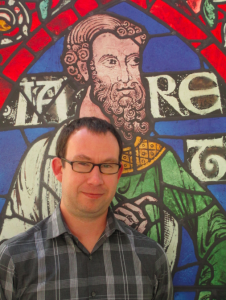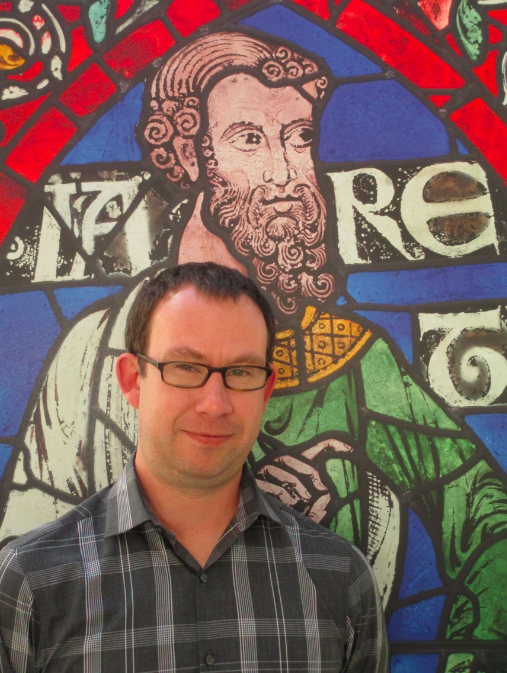By Alyssa Seidman
Contributing Writer
A childhood of “Dungeons and Dragons” and time abroad in London as an undergrad were the contributing factors that led Jay Diehl to pursue a career in understanding the texts and manuscripts that came out of monastic life during the 11th and 12th centuries.

Photo: Alyssa Seidman
Diehl, who is an assistant Professor of History at Post, said his research is “an attempt to write a social history of learning and writing in monasteries.”
“My research really has to do with manuscript books in monastic communities,” Diehl said. He explained that this time period experienced a “spike” in book production. “It was kind of the first revolution in literacy in European history. In the region I study, from all the centuries beforehand, there’s about 80 books. Then starting in the 11th century, we have like 600 books.”
This great divide fascinated Diehl. “I’m interested in understanding what role this increased presence of the written word was playing in monastic culture,” he said. “And to try to figure this out I look at the books and the texts they contain, and because this is a manuscript culture – everything is handwritten – you can customize the text to a certain extent.” Diehl explained these customizations involve changing the formal characteristics of handwritten texts; such characteristics include annotations, drawings, layout structure and titles.
Diehl explained that these manuscripts could help determine which bodies of knowledge certain monasteries were focusing on, and how those studies factored into daily monastic life.
Diehl went on to talk about his experiences both inside and outside of the classroom that have helped his independent research.
“In my religion course I did show one of these manuscripts that I’m working with that contains a church law collection, and certain canons in it have little notes. And so I ask [my students] to theorize what these notes might’ve said about how this book was being used.”
Diehl spends a large part of every summer travelling to libraries in Europe and playing with manuscripts, mentioning that his visits to one particular monastery inspired the prospect of a book. “I’m working on it right now,” he explained. “It’s about the history of books in the Saint Lawrence monastery in Belgium.”
His parting words revealed that his line of work is not easy. “Book history is its own thing. To be a medievalist who works with manuscripts, you need to learn how to read Latin, you need to learn how to read the hand-writing that’s used. You need to learn how to date them. There’s all these skills, and the only way to really get good at it is just to do it over and over again.”



Be First to Comment